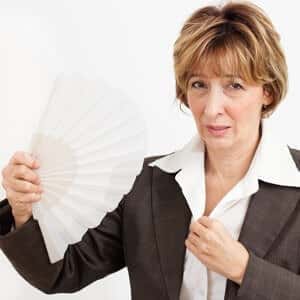
Many women find that hots flashes and night sweats during the menopause transition detract seriously from quality of life. The question then becomes how can they be managed?
Managing Hot Flashes:
There are a number of potential approaches. For years, gynecologists used to prescribe hormone replacement therapy, typically Premarin (known technically as conjugated equine estrogens, since it is derived from mare urine), often in conjunction with a progestin to protect the uterus from the risk of cancer.
When the Women’s Health Initiative Study showed in 2002 that treatment with estrogen and progestin led to more blood clots, strokes and heart attacks rather than fewer, and that it also increased the chance of a breast cancer diagnosis, many women declined to take these hormones. But they still wanted or needed relief from never-ending hot flashes. This reader found an interesting solution.
Non-Hormonal Relief for Hot Flashes:
Q. I had breast cancer in 2004 and therefore I cannot use any hormone products, not even black cohosh. The doctor prescribed Paxil for hot flashes, but I have found something better.
One of the best products for hot flashes is pine bark extract. I read about it in a newspaper a number of years ago.
Pine Bark Extract:
It is not a drug or a hormone but the extract from the bark of the white pine found in Europe. Someone renamed it Pycnogenol and charges a lot of money for it.
I buy a less expensive pine bark extract and it has made a huge difference in my hot flashes. It is a better solution than Paxil.
A. Pycnogenol is a standardized extract of French maritime pine bark. The first study we saw of its effectiveness for menopausal symptoms was published in August, 2007 (Acta Obstetricia et Gynecologica Scandinavica).
Another clinical trial confirmed that French maritime pine bark extract relieves hot flashes and nighttime awakening in perimenopausal women better than placebo does (Journal of Reproductive Medicine, Jan-Feb., 2013). We have more information on Pycnogenol and other non-drug approaches to easing hot flashes in our Guide to Menopause.

